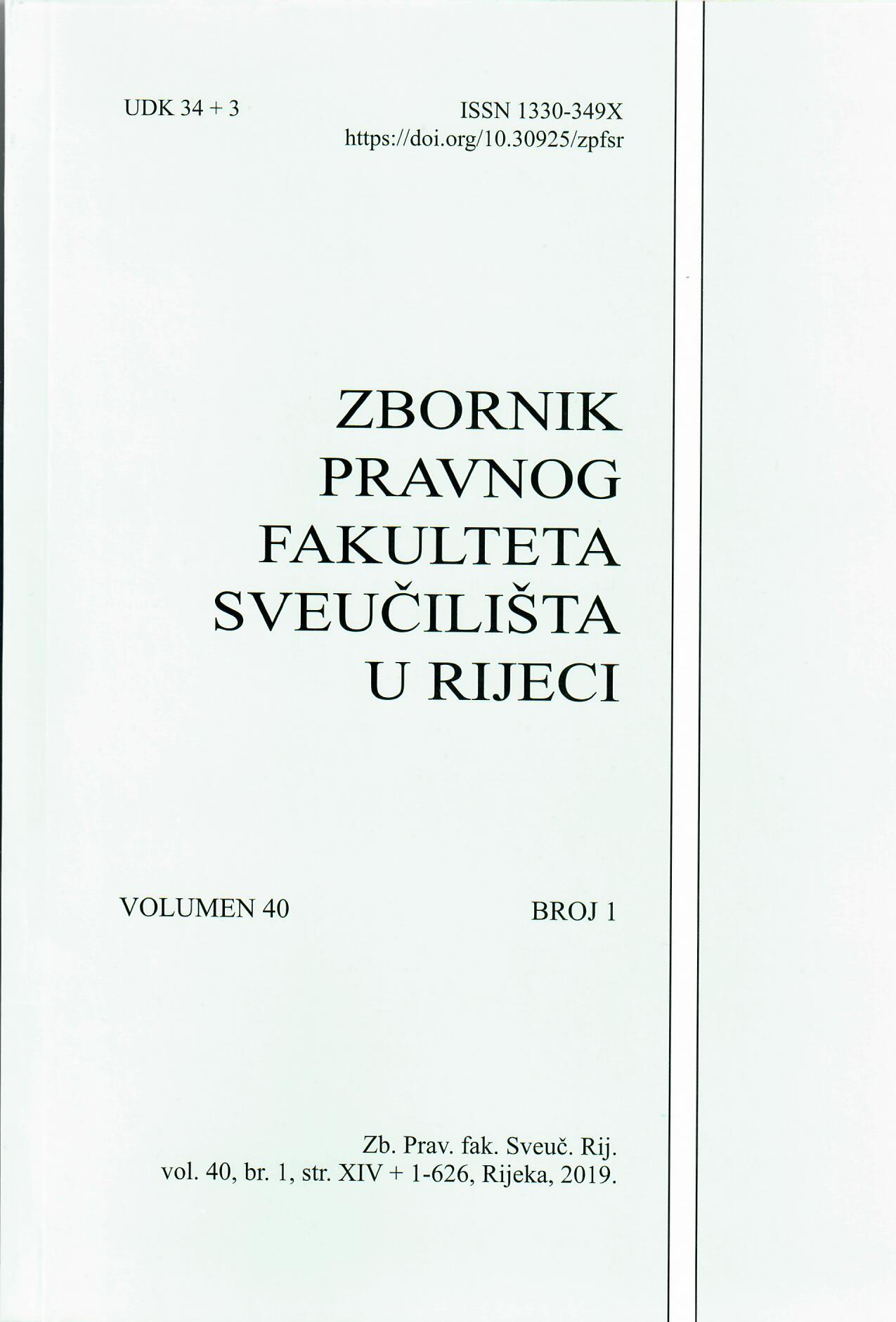STRESSING THE RIGHTS GUARANTEED BY THE CONSTITUTION AND CONVENTION IN THE PROCEEDINGS BEFORE ORDINARY COURTS
DOI:
https://doi.org/10.30925/zpfsr.40.1.20Keywords:
Constitutional Court; ECtHR; Convention; Constitution; subsidiarity principle; Protocol 15; Convention law; constitutional complaint; reference to the ECtHR; argumentationAbstract
The ECtHR’s position is that the subsidiarity principle is one of the
fundamental principles upon which the supervisory system of the Convention is based. This specifically means that the mechanism for the protection of human rights and fundamental freedoms established by the Convention is subsidiary to national human rights protection systems. This paper focuses on the period when all parties in
court proceedings had to understand and accept the importance of the application of the Convention for the Protection of Human Rights and Fundamental Freedoms, as well as of the Constitution of the Republic of Croatia in proceedings before ordinary courts. The importance of these two documents is expressed in the decisions of the Constitutional Court of the Republic of Croatia and those of the European Court of Human Rights, which, with their role as interpreters of the Convention and of the Constitution respectively, clearly defined the contents of individual constitutional and Convention rights, freedoms, guarantees and principles, and created guidance for their better protection. The advantages of stressing violations of Convention and constitutional rights, even during proceedings before ordinary courts, are indisputable,
and this paper also stresses their obligatory nature, in situations where parties strive with their requests to appear before courts of these instances. The authors, who have been dealing with constitutional and Convention law throughout their careers, have followed the development of the case law of these courts, especially of the Constitutional Court, and thus noticed the development of stricter criteria of both courts when deciding on the merits in individual cases. In this paper, the authors focus on Constitutional Court and ECtHR decisions where the principle of subsidiarity is more prominent. They clarify the importance of a constitutional complaint, as well as the status of constitutional adjudication compared to ordinary court proceedings, and the shift of the Constitutional Court to constitutional argumentation in place of the argumentation of an ordinary court, which prevailed in the earlier jurisprudence of the Constitutional Court. In this context, it is possible to still perceive the insufficient “usage” of Constitutional Court and Convention arguments, as well as the incorrect
argumentation of the constitutional complaint and of references to the European Court with regular appellate reasoning.
Additional Files
Published
How to Cite
Issue
Section
License
Collected Papers is an open access journal. Journal does not charge article processing charges (APC) to authors. It is licensed under CC BY-NC licence 4.0.
Collected Papers of the Law Faculty of the University of Rijeka" is an Open Access journal. Users are allowed to read, download, copy, redistribute, print, search and link to material, and alter, transform, or build upon the material, or use them for any other lawful purpose as long as they attribute the source in an appropriate manner according to the CC BY licence.
The papers published in "Collected Papers of the Law Faculty of the University of Rijeka" can be deposited and self-archived in the institutional and thematic repositories providing the link to the journal's web pages and HRČAK.
Upon acceptance of the manuscript for publication by this journal, the author can publish same manuscript in other journals only with the permission of the Editorial Board (secondary publication). A repeated publication should contain a notice as to where the manuscript was originally published.



